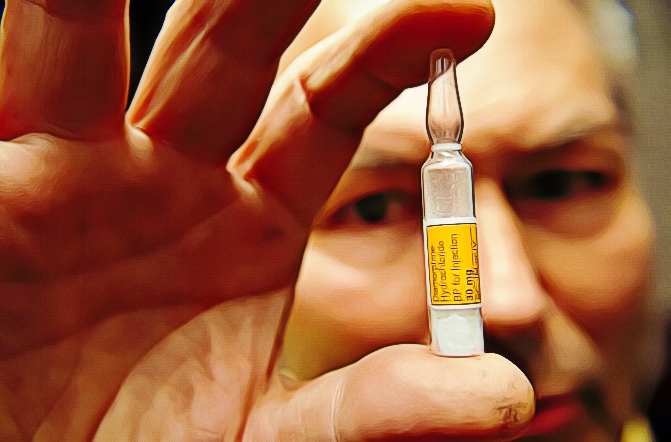It’s a patient’s responsibility to listen to their physicians, especially concerning severe illnesses. When you receive a prescription, you must know the ins and out of it to be prepared for its potential effects. This applies to anything, from over-the-counter medicine to prescription medication.
Diamorphine is a prescription for moderate to severe cancer pain and also for some respiratory and cardiac illnesses. It’s a strong opioid that has potent qualities, which is why it’s only for emergency use or extreme medical conditions. Although your physician may prescribe it to you, they may not give you complete information about it and how it can affect your daily lifestyle.
What is Diamorphine?
Diamorphine is generally for the relief of severe pain for post-surgical procedures, heart attacks, and terminally ill patients. It’s necessary for patients who require a potent pain management medicine for their condition’s symptoms. Most patients agree to use it without knowing what they’re getting into. Although you must follow your doctor’s orders, you need to do your own research to find out what you should expect with the prescription they write for you.
In this article, we will answer four questions you may have about Diamorphine.
Diamorphine Hydrochloride
Diamorphine hydrochloride is a form of acetylated morphine derivative. It’s substantially more potent than morphine, which is why it’s only recommended for severe pain relief. Doctors prescribe it for people in palliative care or patients who need help in managing pain from dyspnea. It also acts as a powerful cough suppressant, making it a viable remedy for terminal lung cancer symptoms.

Diamorphine vs Morphine
The effectiveness of prescriptive medicine mostly depends on its chemical reaction rate in relation to its dosage. Chemists aim to develop a drug that offers the most effective medicine with the least needed properties to occur. This is because many prescriptive medicines are harmful in large doses in the body, leading to many issues with the circulatory system.
Studies show that Diamorphine’s preoperative effects have much higher sedative action than morphine. Diamorphine has a much shorter duration of action, which promotes faster recovery together with anesthesia. This earlier reaction means it has a more rapid response rate at a much shorter dosage.
Comparing 5 mg of Diamorphine and 10 mg of morphine results in faster recovery rates with Diamorphine. This makes it a better option in the long-term for any patient who needs immediate and potent narcotics to relieve pain.
Diamorphine Pills
Although Diamorphine is generally administered through injection, you can purchase it in pill and tablet form. This makes it possible for you to receive Diamorphine in three ways, from a subcutaneous and intravenous injection or through swallowed tablets.
Injections through your skin, or subcutaneous injections, goes through your fatty tissue to enter your body. A medical professional will usually use your thigh, stomach, or upper arm as an entry point. You may experience a stinging or dull pain over time. Flushing of the skin and itchiness may also be present after some time.
Injections through your veins, or intravenous injections, directly introduces the medicine through your bloodstream. A medical professional usually access it through the back of your hand or a vein in your arm. Additionally, they can introduce it through a portacath or a PICC line through your chest.
Taking diamorphine pills is the easiest since you only need to take it by mouth. There are no other special instructions for it as long as you ingest the right dosage.
Depending on the severity of your pain, you may start with a higher dose than normal. Your physician will gradually adjust it over time while recording your body’s response to it.
Diamorphine Tablets
Like any potent pharmaceutical drug, there are potential adverse effects in Diamorphine with its pain-relieving properties. Diamorphine can present some unwanted side effects as your body adjusts to it over time. Listed below are eight potential side effects you should be cautious about.

- Feeling of being ill: Feeling unwell is a common symptom for many patients who are still adjusting to their medicine dosage. It’s best to avoid fatty or fried foods and get plenty of water in your body since it’s in a vulnerable state. Some signs of feeling ill include:
- Sweating
- Constipation
- Vertigo
- Dry mouth (xerostomia)
- Skin conditions (rashes, flushing, itching, etc.)
- Mood changes (depression, ecstasy, etc.)
Although it may be a challenging first few weeks, it’s necessary to proceed with your prescription routine to help your body adjust to it. It’s dangerous to stop taking Diamorphine suddenly, so you should always consult with your physician.
- Physical changes: Besides skin conditions, you may also experience other changes in your body and its functions. Some patients report that they have difficulty passing urine, while others have a distinct narrowing of their eyes’ pupils.
- Drowsiness and confusion: Diamorphine can cause drowsiness or dizziness after it enters your system. This is why it’s advised to avoid driving or doing any physical task after taking it. If drowsiness still persists even after a few days of taking it, it’s best to contact your doctor about adjusting your dosage.
- Vertigo: Similar to the feeling of confusion, you may confuse it for signs of vertigo. It causes you to have severe migraines and headaches through small head movements. This can affect your balance through damage in your inner ear.
- Heart conditions: Although Diamorphine is a solution for cardiac diseases, you may experience changes in your heart rhythm in your first few weeks. This can present itself through low BPMs or rapid palpitations. If these symptoms persist after adjusting your dosage, you must notify your physician immediately.
- Lower libido: Besides physical ailments, you may also experience behavioral conditions like lower libido and lack of interest in sex. This will not happen immediately and usually only develop over a long period of treatment.
- Hallucinations: Different kinds of hallucinations, from auditory to visual, can be symptoms of Diamorphine’s toll on your body. If you start hearing or seeing things that aren’t there, you need to stay calm and let these false sensations pass.
- Addiction: Since it’s an opioid, there’s a potential that you can develop a psychological dependence on the drug. It most likely occurs to people who have previous issues with alcohol or drug abuse. Although there’s a chance of addiction, there are ways to prevent you from abusing it. If you have any fears about this, it’s best to consult your physician so that you can discuss your options.
In some cases, not all patients experience all these problems. Eventually, these symptoms will grow weaker and fade away over time. However, it’s best to consult your doctor if these ailments persist or grow worse to see if you need to change your treatment or dosage.
If your doctor prescribes Diamorphine, it may be a sign that mild pain relief solutions are no longer working for you. Even though it’s a potent medicine necessary for your condition, it’s best to be wary about the dangers of substance use disorder. To avoid this, you must always observe the proper dosage from your doctors and consult them if you feel any onset signs of drug dependence.
Sources
https://pubmed.ncbi.nlm.nih.gov/6953726/
https://www.cancer.gov/publications/dictionaries/cancer-terms/def/diamorphine-hydrochloride

